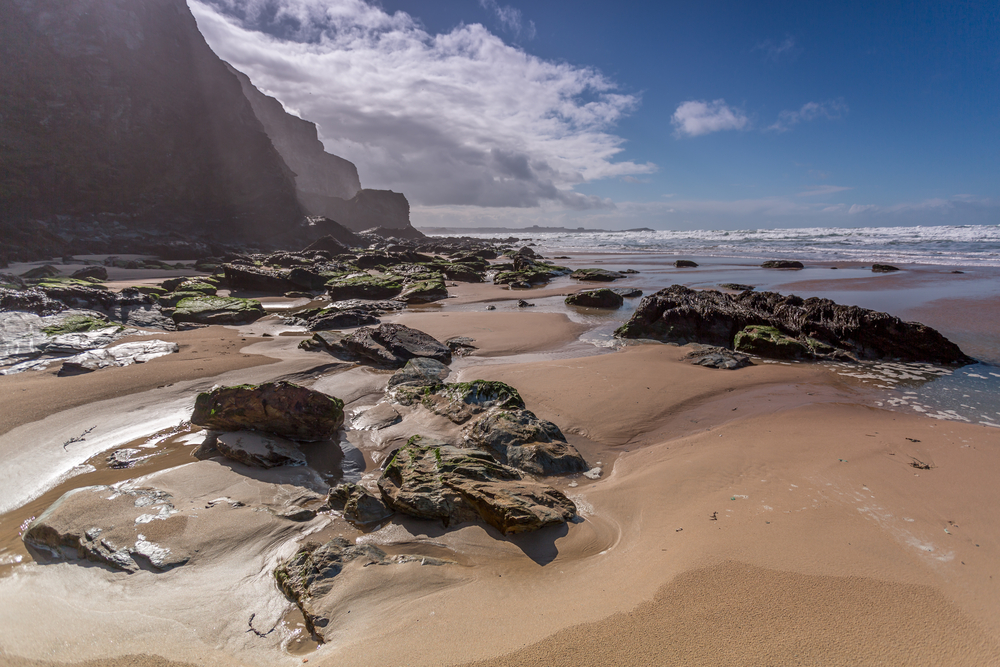If Cornish waters are still too cold to swim in, and if lying on wet sands is more likely to give you chilblains than a suntan, fear not, there’s still plenty of fun to be had on our beaches – especially with enthusiastic children in tow.
Crabbing
There are few more nostalgic pastimes than dangling a line over a harbour wall and tempting a clutch of crabs into a net with a piece of bacon!
For the uninitiated, crabbing is performed without hooks and involves a line with a net loaded with bait. Popular locations include Padstow and Port Isaac on the north coast, Fowey or Looe on the south coast, and Mullion Cove on the Lizard.
First find a suitable spot. Somewhere close to a harbour wall or up against the rocks is the best place to entice the crabs out of their hidey holes. Make yourself comfortable, as it can take a while for the crabs to bite. When they do, you can keep a few in a bucket containing salt water – but not too many, as they’ll start to fight.
After an hour or so, find a safe place to carefully return your catch into the water. Shore crabs are small and not particularly edible, so don’t try to cook them!
Rock Pooling
It’s not just crabs that you’ll find on the Cornish coast. Look carefully in a rock pool and you might discover twisting tentacles, glowing eyes and snapping pincers! Rock pooling is another activity that rewards patience: stay still and observe for long enough and you could be lucky enough to spot a Tompot Bletty with its red eyes and tentacles.
Snake-locks anemone also lurk in these shallow waters, they’re bright green with purple tips and a nasty sting in the tail. Take care around the Velvet Swimming Crab, too, which is identifiable by its dark hair and blue bands on its legs, as this defensive little creature has wickedly strong pincers.
If you’re visiting north Cornwall, Treyarnon Bay, between Newquay and Padstow, is great for beginners, with large pools packed with sea-life. Also near Padstow is Newtrain Bay, locally known as Rocky Beach. As the name suggests, there’s not much scope for sunbathing, but at low tide you’ll find a huge variety of marine creatures in the natural sea pools.
Watch your step though; these pools can be slippery and sharp, so wear something with good grips on your feet. And if you move stones, be sure to replace them and definitely don’t prod or remove the animals – this is their home!
Beachcombing
If your kids are still desperate for more, why not try a scavenger hunt? Cornwall’s beaches are packed with interesting objects, such as driftwood, seaglass, shells and skulls. Visit Perranporth Beach and you might even find a piece of Lego – which is still washing onto the shores 25 years after it spilled into the ocean from a container ship!
